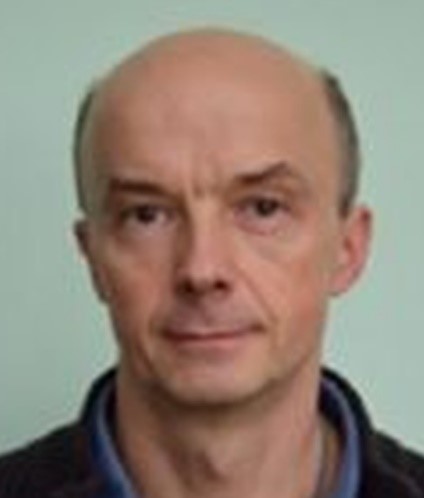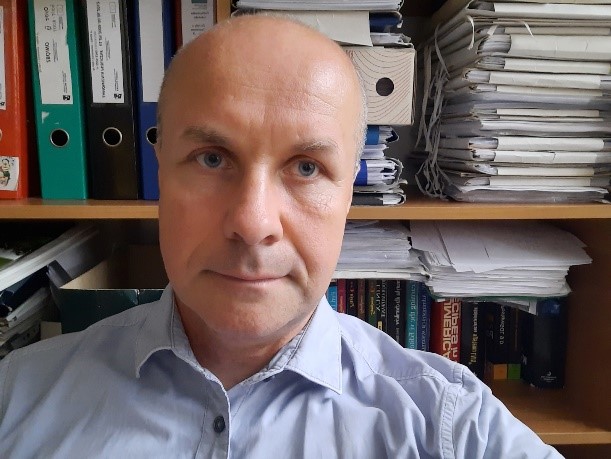
This school is perfect for all young scientists and students who wish to learn the basics and the advances in quantum ideas and methodologies, along with their practical applications in chemistry, electrochemistry, and material sciences.
Tutorials will be accompanied by a big block of laboratory classes, during which students will learn how to perform quantum-chemical computations. All participants of the summer school will have a chance to solve nontrivial computational problems, right from scratch, using a supercomputer and a quantum software. In addition, they will get to know multiconfigurational methods - the next level of skills in computations in the quantum-chemistry field. Thanks to the laboratory classes, students will see the structures and the orbitals, and they will understand what is actually the outcome of their computations.
Classes will be delivered by two professors of the Faculty of Applied Physics and Mathematics of Gdańsk Tech - prof. Marek Czachor and prof. Maciej Bobrowski, who is the chair of the QUEUE I Summer School.

Marek Czachor, professor
Institute of Physics and Applied Computer Science
Faculty of Applied Physics and Mathematics
Gdańsk University of Technology
It is generally believed that complex numbers, Planck's constant, commutators instead of Poisson brackets, or Schrodinger equations are signatures of quantumness of quantum mechanics (as opposed to real numbers, limit h->0, or Newton/Lagrange/Hamilton equations that are typical of classical physics). I will question each of these statements. So, what is truly quantum in quantum mechanics? We will talk about it...
Marek Czachor is a theoretical physicist, currently a full professor of physics at Gdańsk University of Technology. His postdoc positions involved fellowships of Fulbright (MIT), DAAD, Alexander von Humboldt (both at Arnold-Sommerfeld Institute for Mathematical Physics, Clausthal), and NATO (Antwerp). For the past twenty years he has been associated with Center Leo Apostel (Brussels). His scientific interests involve nonlinear quantum dynamical systems, general foundations of quantum mechanics and theory of relativity, and interdisciplinary applications of quantum structures and generalized arithmetics.
Interested in the scientific lectures of professor Czachor? Click on the following links:
Quantum-like algorithms without quantum mechanics
Arithmetic loophole in Bell's theorem, part 1
Arithmetic loophole in Bell's theorem, part 2

Maciej Bobrowski, PhD, DSc, university professor
Institute of Nanotechnology and Materials Engineering
Faculty of Applied Physics and Mathematics
Gdańsk University of Technology
Lectures and laboratories form a practical course of basics of quantum chemistry. We will start with the essentials, including examples, so that the students may perceive the typical and practical quantum philosophy. In the computer laboratory, the students will learn from scratch how to manage any quantum-chemistry problems, including building the structures, working with advanced quantum software, analyzing the results, viewing the orbitals and vibrations, investigating the reactions, and even working in a network environment under the Linux operating systems.
Maciej Bobrowski holds a PhD degree in Theoretical Chemistry and a DSc degree in Physics. He works as a university professor at the Faculty of Applied Physics and Mathematics of Gdańsk Tech, and in the Centre of Informatics Tricity Academic Supercomputer and networK (CI TASK). His fields of interests include chemistry of any kind, functional materials, electronic structure & its changes, quantum & numerical methods, and programming. He is a very experienced researcher who participated, managed, and coordinated several national as well as international projects, including
• ENERLIQ – Energy conversion based on ionic liquids and novel SOLID technology (Polish-Swiss Research Programme)
• PARYLENE based artificial smart LENSes fabricated using a novel solid-on-liquid deposition process (European Commission, FP7-NMP)
• MAGnetic nanoparticle based liquid ENergy materials for Thermoelectric device Applications (HORIZON 2020)
run with best universities, research institutes and industry partners from EU and beyond.
Apart from research, Maciej is strongly engaged into teaching. He is one of the main academic teachers in the international double degree Master’s program in Nanotechnology and Mathematical Engineering – InterMaths - Mathematics for new materials design run in collaboration with the University of L’Aquila (Italy).



